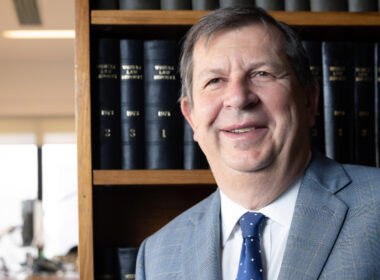After 10 months of deliberation, Federal Court Judge Anthony Besanko dismissed the defamation claim brought by Ben Roberts-Smith against Nine newspapers.
The former SAS soldier first launched defamation proceedings against the Sydney Morning Herald, The Age, The Canberra Times and three journalists over six articles published in 2018 that accused him of being a war criminal, murderer, bully, and abuser.
On 1 June, Justice Besanko found the newspapers had established substantial or contextual truth to the allegations that Roberts-Smith had committed war crimes, engaged in acts of bullying, and been violent against a former partner.
The trial ran for more than 100 days, involved 37 often secret witnesses, accrued 10,000 pages of transcript, and is estimated to have cost $25 million.
Judge Besanko held that Nine newspapers had successfully proved that Roberts-Smith unlawfully killed and assaulted Afghan prisoners and bullied a fellow soldier. However, he found that the newspapers did not prove that Roberts-Smith committed an act of domestic violence against his ex-partner. But the defence of contextual truth was applied.
Professor David Rolph, a defamation expert at the University of Sydney, explained the difference between the defence of substantial truth and contextual truth in an article for The Conversation.
“Substantial truth means what is sounds like – that the allegation published was, in substance, true,” Rolph wrote.
“Contextual truth is a fallback defence. The court has to weigh what has been found to be true against what has been found to be unproven.
“If the true statements about the plaintiff were worse than the unproven statements, then the plaintiff’s reputation was not overall damaged by the unproven statements, and the publisher has a complete defence.”
In this instance, Justice Besanko found that most of the imputations were proven to be true and that the unproven imputations did no further damage to Roberts-Smith’s reputation.
Jason Bosland, Director of the Media and Communications Law Research Network at the University of Melbourne Law School, told ABC News that it was a great result for public interest journalism.
“It’s really vindicating the importance that we place on this type of reporting and to shine a light on misconduct,” said Bosland.
“This was a matter of extreme public importance.
“They were such serious allegations and ordinarily when allegations of criminality or serious misconduct are made the standard of proof is the same [balance of probabilities] but the burden to get there is more difficult.”
Bosland said the decision makes one think about the risks involved in bringing a defamation lawsuit.
“I only vaguely knew of Ben Roberts-Smith prior to this case… but now Ben Roberts-Smith’s name is firmly embedded in my mind in association with these allegations,” says Bosland.
“It really makes you sit back and think back about the function of defamation law and whether it’s really worth bringing proceedings to vindicate reputation and the risks that are involved in that.”
Rolph echoed Bosland’s remarks, asserting that the case illustrates “how hard it is to use defamation law to repair any perceived damage to your reputation”.
“Once a case begins, you never can control what will be said in court,” Rolph wrote.
“The problem is the law is a very blunt instrument. It’s very hard to get people to change their minds about what they think of you.
“All litigation involves risk and defamation trials are even riskier.”
The problem is the law is a very blunt instrument. It’s very hard to get people to change their minds about what they think of you.
Professor David Rolph, University of Sydney
Rolph explained that you can’t sue for defamation for things said in court as it is covered by the defence of absolute privilege as long as it is reported fairly and accurately.
The case was brought prior to the introduction of the new public interest defence in July 2021 which requires publishers to demonstrate they reasonably believed the mater covered in the material was in the public interest.
Bosland and Rolph differ in opinion as to whether the newspapers would have relied on this defence had it applied.
“If a case like this were litigated today following these reforms, it is highly likely the publisher would use the new public interest defence,” Rolph wrote.
“But as today’s decision demonstrates, sometimes the truth alone will prevail.”
Bosland took a different stance, telling the ABC that he is “not confident that the media would have attempted to rely upon that”.
“I think they would have gone down the same path of relying upon truth,” Bosland said.
Justice Besanko has delayed releasing the full open judgment so that the Commonwealth Government can make redactions to any information pertaining to matters of national security.




